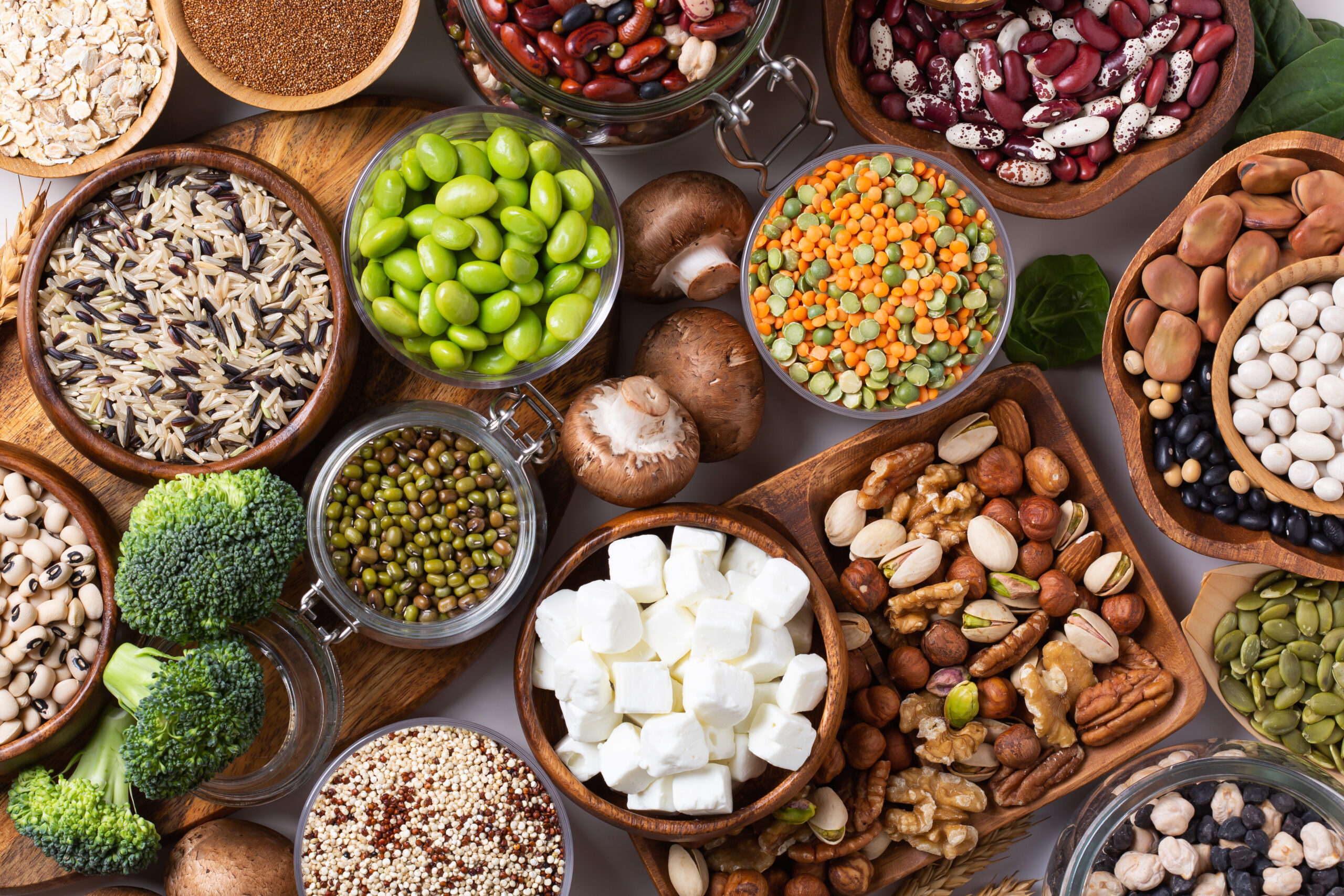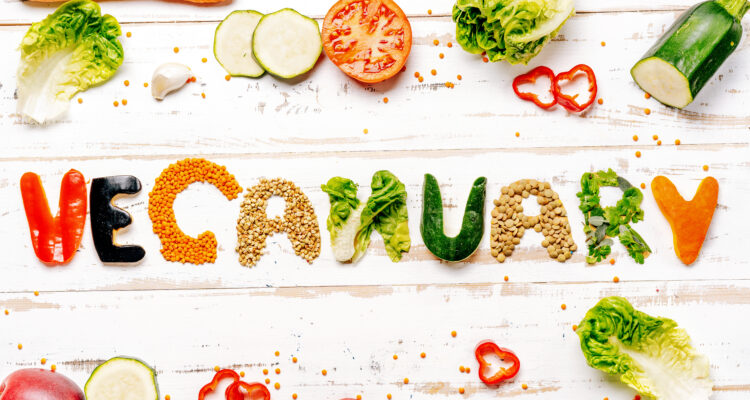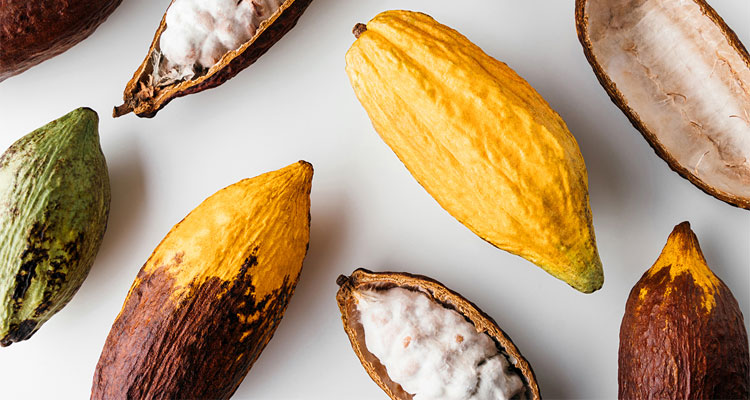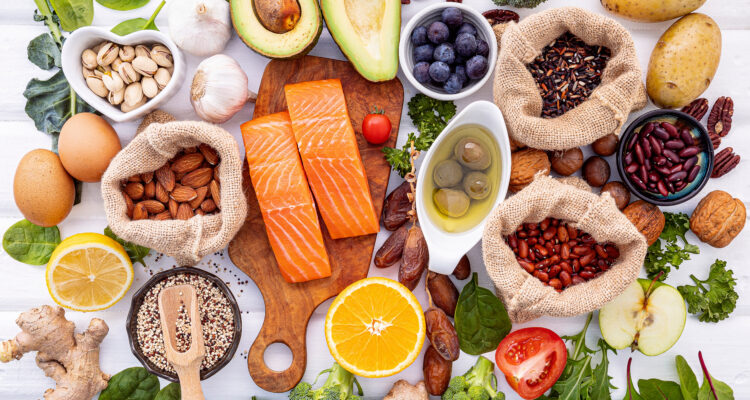What is Veganuary?
Veganuary is a global campaign encouraging people to try a vegan lifestyle for the month of January. Started in the UK in 2014, it highlights the ethical, environmental, and health benefits of a plant-based diet. Participants commit to a vegan diet, avoiding all animal products. This means meat, eggs and dairy products. Some vegans even include honey in the foods they don’t eat.
Veganuary has become a popular way to kick off the new year. The hope is it leads to a permanent shift in dietary habits or even just scaling back your meat consumption after the end of the month.
In this blog we’re delving into why embracing Veganuary is a growing trend and the benefits it can bring to you and the world.
What is the Environmental Impact of Animal Products?
According to Green Peace “In countries like the UK, we need to be eating 70% less meat and dairy by 2030 to prevent climate breakdown.”[1] But in what way does eating meat harm the environment? Here are some of the key problems:
- Deforestation: Large areas of forests are cut down to create grazing land for livestock – particularly in the Amazon rainforest. This results wildlife losing their home and a loss of plant and animal biodiversity. Read about how here at Vavista, we work towards combating deforestation by planting a tree for every policy you buy.
- Greenhouse Gas Emissions: The livestock industry is a huge contributor to greenhouse gas emissions. Particularly the gasses methane and nitrous oxide, which are more harmful than carbon dioxide. 14.5% of all human-caused greenhouse gas emissions are from livestock farming.[2]
- Water Usage: From watering livestock to growing crops to feed them – Meat production consumes vast amounts of water. For example, IME state that to produce 1kg of meat requires between 5,000 and 20,000 litres of water whereas to produce 1kg of wheat requires between 500 and 4,000 litres of water.[3]
What are the benefits of a Vegan Diet?

Plant-based diets are gaining popularity because they’re more sustainable and eco-friendly. By reducing or eliminating the consumption of animal products and focusing on fruits, vegetables, grains, nuts, and seeds, individuals can significantly reduce their environmental footprint. Here’s how plant-based diets can be beneficial to you and the world:
- Environmental Sustainability: Reduces ecological footprint by lowering deforestation, water usage, and greenhouse gas emissions associated with animal agriculture.
- Ethical Treatment of Animals: Promotes a compassionate and humane approach to food production by avoiding the exploitation and harm linked to factory farming practices.
- Health Benefits: A well-balanced vegan diet can lower the risk of chronic diseases and is often lower in saturated fats and cholesterol.
Will I Get Enough Protein?

Lots of people worry they won’t get enough protein on a vegan diet. But plant-based diets aren’t just about vegetables and fruits; they also can contain alternative protein sources that can replace animal products and provide essential nutrients. Here are some popular alternative protein sources:
- Legumes. Beans, lentils, and chickpeas are rich in protein and can be used in a variety of dishes, from soups to salads.
- Tofu and Tempeh. These soy-based products are excellent sources of plant-based protein and can be used in stir-fries, sandwiches, and more.
- Seitan. Made from wheat gluten, seitan is a versatile and high-protein meat substitute used in various recipes.
- Nuts and Seeds. Almonds, peanuts, chia seeds, and hemp seeds are high in protein and healthy fats.
- Plant-Based Meat Alternatives. Brands like Beyond Meat and Quorn offer meat alternatives that closely mimic the taste and texture of traditional meat.
By adopting a plant-based diet and finding alternative protein sources, you can play a crucial role in reducing your carbon footprint and promoting sustainability. Making the switch to a fully plant diet or even just cutting down on your meat and dairy consumption can be great for the environment your personal health and animal welfare. You can get free resources and support at the Veganuary website!
Want more inspiration? Check out our blog on The Healing Powers of Green for your Mental Health.
We plant a tree for every policy you buy here at Vavista. Go ahead and get a quote today!
[1] https://www.greenpeace.org.uk/news/why-meat-is-bad-for-the-environment
[2] https://www.dw.com/en/fact-check-is-eating-meat-bad-for-the-environment/a-63595148
[3] https://www.theguardian.com/news/datablog/2013/jan/10/how-much-water-food-production-waste
Disclaimer: Articles are for general information only – customers should always seek their own independent advice. Vavista is not affiliated with the organisations/businesses mentioned and does not recommend or endorse any of the included products or services. For more information, click here.



